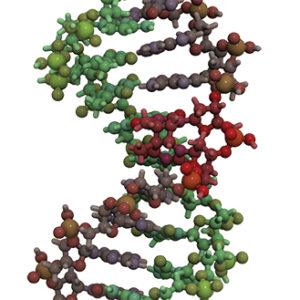Cancer Risk & Genetic Testing
Posted on October 2, 2016 by bob in In Every Life
As a component of routine assessments, healthcare providers ask about your three-generation family history of various types of cancers. An individual may be at higher risk for some cancers if that individual received one or more particular genes from family members. Research on the human genome, genetic sequencing/mapping/biomarkers, and changes in gene patent laws have led to an evolving field of genetic testing to assess for cancer risk. Research has shown that some gene, multi-gene, or genomic mutations are mildly, moderately or strongly linked to development of different types of cancers. This opens the field of genetic testing for risk before any signs or symptoms are otherwise identifiable. 
For example, BRCA-1 or BRCA-2, and various other multiple gene mutations have been linked to breast cancer. The BRCA-1 mutation has been associated with the highest lifetime risk, and both BRCA-1 and BRCA-2 mutations are linked with increased risk for developing
cancer in the other breast. Although the cost for genetic testing has decreased over the past few years, it may not be included in health insurance plans. The U. S. Preventative Task Force has recommendations for appropriate screening of potential risk factors for inheritable cancer before counseling regarding genetic testing (see Resources). If genetic testing is chosen, collaboration among healthcare providers, genetic counselors, individuals and family members can help to evaluate potential risks/benefits of various treatment options.
The following issues may be discussed by an individual and family with healthcare providers and genetic counselors specializing in the potentially hereditary cancer:
1. What family and personal history indicates potential benefits of genetic testing outweigh financial or psychological costs?
2. What are the availability, reliability, cost and reimbursement for single and/or multi-gene panels?
3. What genetic level results will change the assessment of cancer risk? In other words, is there strong, moderate, or low links to future cancer development (5-year or 10-year and lifetime risk of developing the potential
hereditary cancer)?
4. How do the results impact quality of life or psychological state of the individual who has been tested?
5. What do you do with the information? Do results change decisions regarding lifestyle, or other methods of prevention or management, including preventative surgery for removal of all or part of the potential cancer site before the cancer may develop?
6. Will results influence decisions about childbearing, or options for medical intervention, including assisted reproduction?
7. Do individuals prefer face-to-face, telephone, or written disclosure of the results? Do individuals, healthcare providers, or genetic counselors notice that the reporting method influences treatment choices or psychological state?
8. What potential is there for lifetime psychosocial or economic burden of inconclusive, false-positive or false-negative results of genetic tests on the individuals screened, or related to communication of test results with first-degree relatives (recommendations for cancer panel testing of siblings and next generation)?
Use of genetic testing to screen for multiple genes and genomes that have shown a link to different types of cancer is expected to increase for prevention, diagnosis and treatment. The National Comprehensive Cancer Network (NCCN) has guidelines for referral to cancer genetic professionals for information, and several risk assessment models are available.

Arlene Morris
Arlene H. Morris, EdD, RN, CNE is Professor of Nursing, Auburn Montgomery School of Nursing. Contact her at amorris@aum.edu.
Resource: http://bit.ly/2cJ8Mir









